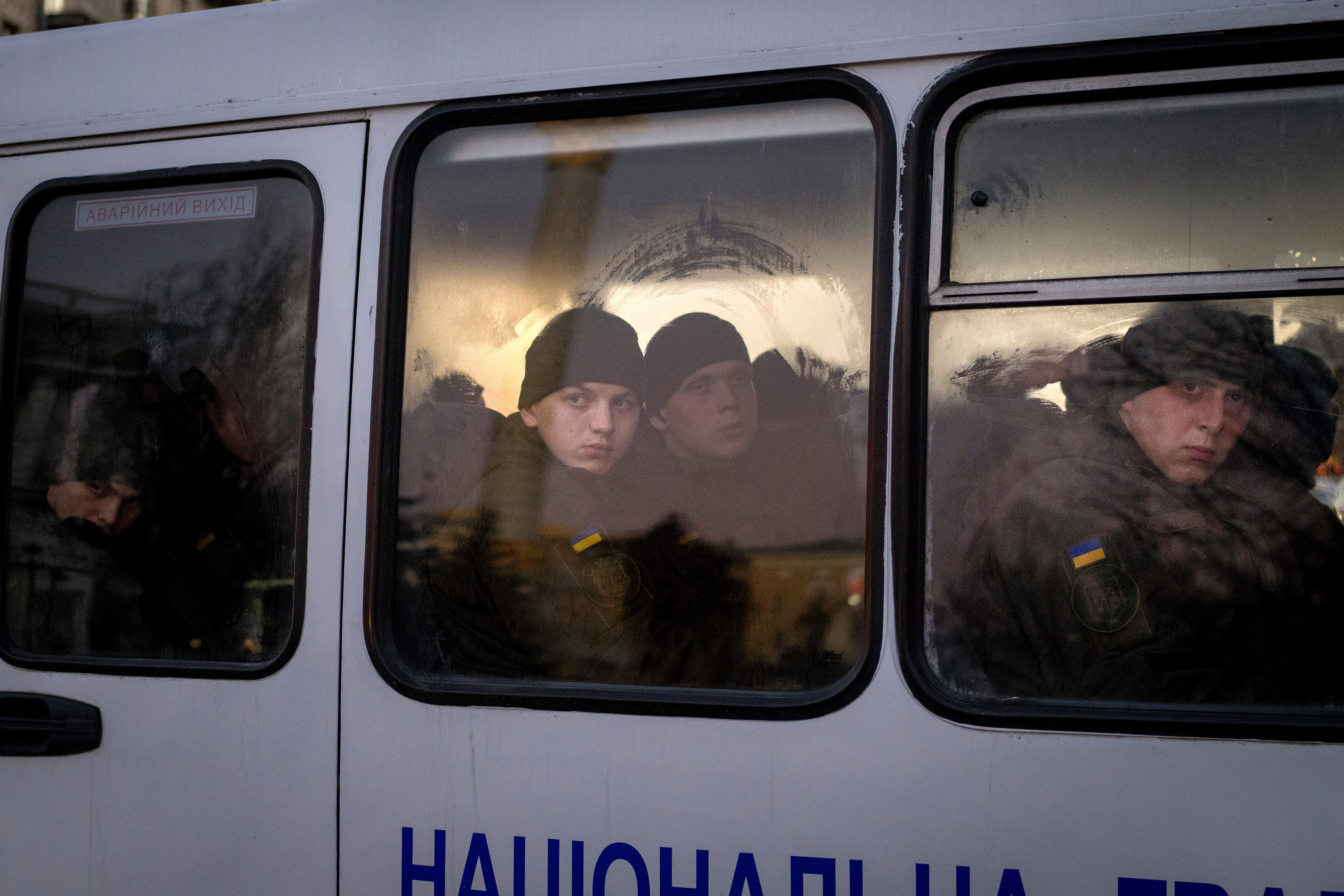‘Kyiv is empty’: The Ukrainians getting ready to flee — and the ones who have already left
Jessica just sold all her family’s belongings, left her dog with friends and relocated to California in her third trimester of pregnancy. She remarked that she’s ‘not surprised’ about what’s happening


“The city is empty,” my friend and former colleague Tamara, a 52-year-old Kyiv native, told me over FaceTime. “Now in Kyiv, no traffic. Not a lot of people.” She pushed her silver-rimmed glasses up her nose. “All teachers left Kyiv and Ukraine. All of them. Yeah.”
I first visited Ukraine in 2009 as a college senior. My friend Nicole pleaded with me to join her in teaching art classes at a Ukrainian orphanage in Simferopol. I reluctantly joined, and sulked the entire 14 hours to Crimea, as I had just been rejected from art school and wasn’t sure what else to do post-graduation.
Arriving on March 8th, International Women’s Day, the women in our group were given beautiful flowers of snow-white blossoms. I was mesmerized by the beauty and generosity of the Ukrainian people as they shared their history, culture and traditions with us. After leaving Simferopol, I decided to pursue a degree in Montessori education and become a teacher. When I received the opportunity after several years of teaching in Jersey City to work overseas in Kyiv, I jumped at the chance. It felt like the perfect place to begin my international teaching career.
I arrived back in Ukraine in August 2014, six months after the Euromaidan revolution, and quickly settled into a routine — until the snow came. Desperate to escape the piercing cold, I booked a flight to Israel. After posting a picture of my Israeli breakfast to Instagram, I received a DM on Messenger from the Crimean translator I’d used during my first trip in 2009: “Are you in Tel Aviv?”
“Yes,” I quickly replied, “Are you in Israel?”
“Yes. In Bat Yam. Would you like to meet?”
“Of course!” I typed, “How’s tomorrow?”
We met in Jaffa the next day. It was amazing to see her after almost five years. It was as if no time had passed. She told me about the Crimean invasion, and how she came to live in Israel: “First they turned off the mobile connection. I had to make a Russian passport, otherwise I would lose apartment. What was I supposed to do? I felt numb,” she told me as we looked out at the Mediterranean sea. “At least now I have met the love of my life and can live here in Israel. Here I feel free.”
My two-year adventure in Ukraine turned into five, and I couldn’t bring myself to leave the country fully until 2019. But I kept in touch with my old friends — and kept on top of the news about Russia’s plans to possibly invade Ukraine. On a Zoom call with one of my closest friends in the country, Iryna, I tried to convince her to take advantage of the lull and get out: “Iryna, if the international teachers leave, you should leave. Once the teachers go, you really should get on a plane.”
“But Clare, I’m in the middle of dental work, and I just bought a new standing desk and work chair,” Iryna replied.
“I will personally buy you a new desk and desk chair,” I retorted. “There’s only two things in this world that you can’t replace: your health and your life. Get out.”
News about Russian troops moving into Ukraine continued to break. My mother called me to say that if any of my Ukrainian friends needed to flee to the US, her house in Nashville was open.
When I saw on Facebook that the school I worked for in Kyiv was closing for a week, I panicked. “Don’t worry, Clare,” my former colleague Ira, a 33-year-old teaching assistant, told me when I messaged. “It’s life as normal. We had pizza and sushi for lunch.” But then I received a new message on WhatsApp from my former swim trainer, Katya, asking if I could help get her son a job coaching swimming in America. Half my friends in the region were surprisingly blasé; the other half were ready to get on the next plane out.
At the end of January, my friend Jessica relocated from Ukraine to the US, along with her two young children and husband, during her third trimester of pregnancy. “I’m not surprised that this is happening,” she told me. “We’ve had tensions with Russia in the winter ever since 2014.” She added that her family had sold what belongings they could, left their dog Logan with family friends, and gone to California.
My friend Anya, a 32-year-old living in Kyiv, told me today that she and her family “are planning to [leave] all stuff and will go to the west” when troops get closer. “Just waiting now,” she wrote. “But we prepared the documents and pills for quick leaving.”
Vasya, a 35-year-old architect, didn’t mince his words when I asked him about the conflict: “In exchange for Ukraine’s renunciation of nuclear weapons, the United States and other countries promised us guarantees of the security of our borders and sovereignty. And now we feel betrayed.”
This morning I called Iryna on Messenger. “I’m still contingency planning,” she told me. “I just talked to my therapist about it. It’s like a chess game. You follow the news and see what happens next.”
“I got you,” I told her, “if there’s anything I can do let me know.”
“I’m going to my yoga class now,” she told me, “Talk soon.” We hung up, each going about our normal lives while at the same time suspended in a terrible limbo.
Bookmark popover
Removed from bookmarks